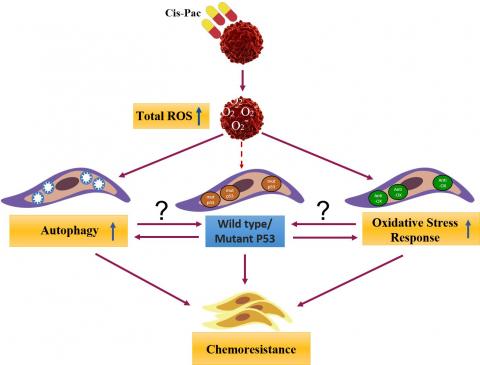Therapy resistance and metastasis are both considered to be severe impediments in cancer therapy. Several reports have established autophagy to play a crucial role in the acquirement of chemoresistance across different cancer types such as hepatocellular carcinoma, glioblastoma, lung, colorectal, breast cancer etc against conventional cytotoxic therapy, targeted therapy and radiation therapy. Autophagy has also been postulated to modulate the metastatic potential of the cancer cells as an essential adaptive survival mechanism. Furthermore, cisplatin and paclitaxel have been routinely used as first line of therapy in ovarian cancer treatment. Apart from the conventional mode of action, reports also suggest their ability to generate large amounts of reactive oxygen species (ROS) in the cancer cells which create oxidative stress mediated cytotoxicity. Since autophagy and oxidative stress are also intricately related I am interested in studying the effect of different p53 hot-spot mutants in regulating autophagy to circumvent the cytotoxic effects of ROS and how it in turn dictates therapy response and metastasis.



